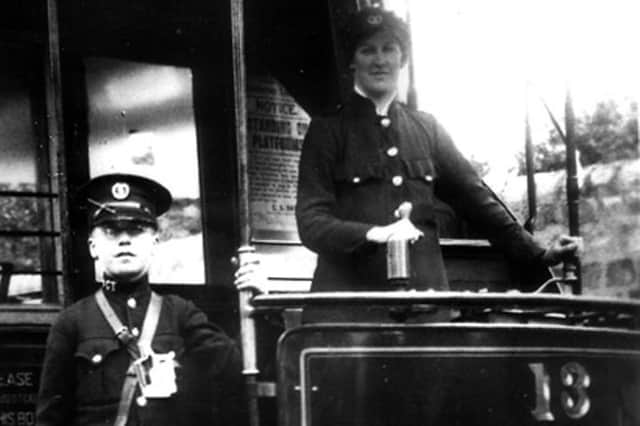Wish for '˜Peace Christmas' that sadly never came true


The Doncaster Gazette, reporting on Christmas 1918, said: 'This was the first Christmas for four years not overshadowed by war. (There) was a notable restraint and lack of boisterousness about the way in which the season was celebrated.
'There was little doing in town to lure people away from their firesides. The holiday was a particularly quiet and sober one.'
Advertisement
Hide AdAdvertisement
Hide AdVolunteer Roger Offord has been exploring the archives to shed light on what Christmas was like 100 years ago.
The investigation forms part of his work for Doncaster 1914-18, a community project supported by National Lottery players through the Heritage Lottery Fund (HLF) to commemorate the First World War.
The project has been uncovering extraordinary stories about Doncaster's people and places in the final months of the First World War '“ and they're hoping that local people can help unearth even more of this hidden history, to build an everlasting digital memorial.
After Armistice had been announced in November 1918, there had been great hopes for a joyous '˜Peace Christmas' in Doncaster, celebrating with family '“ just as it used to be.
Advertisement
Hide AdAdvertisement
Hide AdThe reality was very different. It would take many months for fathers, sons and brothers to return from the battlefields.
Local people soon recognised that there were others who were desperately needing to feel Christmas cheer in Doncaster.
They included soldiers recovering in local military hospitals, who were often far from home, and Doncaster pulled together to provide presents and entertainment.
At one point, it looked as though crowds of soldiers would be spending Christmas 1918 on Doncaster train station. Many had been travelling for weeks, trying to get back to their homes in the north from overseas.
Advertisement
Hide AdAdvertisement
Hide AdThe YMCA also arranged for these men to make a phone call to the police in their home town '“ a rare privilege.
Once the phone message had been received, a special constable would visit the soldier's home and inform his family that he would be returning by the next train.
Once back home, it soon became clear that there would be no turning back the clock to a nostalgic Christmas Past.
Advertisement
Hide AdAdvertisement
Hide AdThe war had changed lives and the reverberations were felt throughout Doncaster.
Just like today, the newspapers for December 1918 were full of politics, not Christmas.
Immediately after Armistice, a general election was called, the first since 1910.
It was to be a landmark: the first election where women over the age of 30, and all men over 21 could vote, recognising their significant contribution to the war effort.
Advertisement
Hide AdAdvertisement
Hide AdThe actual count was delayed until December 28, to allow all the voting slips for those who were abroad to be received.
The result was a landslide for David Lloyd George, who had led the country since 1916, and was campaigning to make 'a country fit for heroes'.
Just days before Christmas, the Chronicle reported that eight new pits would soon be opened in the area, a great gift for hundreds of men needing employment.
'There appears to be no doubt that, within the next five or ten years, Doncaster and the district will be twice as large and important as it is to-day as a great centre of coal and commercialism; its future industrial expansion and extension would appear to be more than ever assured'¦ thus marking the greatest development of any coalfield in the history of time' said a report in the newspaper on December 20, 1918.
Advertisement
Hide AdAdvertisement
Hide AdThis Christmas, the Doncaster 1914-18 project is appealing to families to share their stories and photographs.
To find out more, including news of events and exhibitions taking place around the borough of Doncaster, visit www.doncaster 1914-18.org.uk